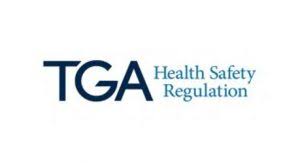The new article addresses the aspects related to the way study results should be analyzed, and also the ones related to changes made by a study sponsor to a pre-defined study design after the study itself has commenced.

Table of Contents
The Food and Drug Administration (FDA or the Agency), the US regulating authority in the sphere of healthcare products, has published a guidance document dedicated to design considerations for pivotal clinical investigations for medical devices. The document provides additional clarifications regarding the applicable regulatory requirements, as well as recommendations to be taken into consideration by medical device manufacturers, study sponsors, and other parties involved in order to ensure compliance thereto. At the same time, provisions of the guidance are non-binding in their legal nature, nor are intended to introduce new rules or impose new obligations. Moreover, the authority explicitly states that an alternative approach could be applied, provided such an approach is in line with the existing legislation and has been agreed with the authority in advance.
The scope of the guidance covers, inter alia, the aspects related to sustaining the quality of clinical studies in order to ensure the accuracy and reliability of their results.
Study Analysis
First of all, the authority mentions that the study analysis conducted in the inappropriate way could impact the usability of the evidence generated in the course of a study. Hence, the study protocol should have a detailed, pre-specified Statistical Analysis Plan (SAP) that includes plans to evaluate, to the extent possible, key assumptions that were made in the design of the study (e.g., assessment of carry-over effects in a crossover study design, proportionality of hazards in a survival analysis, or pooling analysis across clinical sites or geographic regions). In particular, the SAP should describe in detail the approach to be applied when analyzing the data collected in the course of a study to be used as evidence supporting the claims made by a medical device manufacturer.
Under the general rule, unplanned post-hoc analyses and other deviations from the initial plan should be avoided to the maximum extent possible. As further explained by the FDA, this includes the use of a different approach to analysis without providing a proper justification, making changes to the pre-defined endpoints, etc. All this could impact adversely the scientific validity of a study. Thus, the protocol should pre-specify sensitivity analyses to demonstrate that interferences are robust to any known sources of bias. The authority also mentions that the scope of analysis should include the missing data and its potential impact on the study results.
However, sometimes post-hoc analysis should be applied in addition to a pre-specified analysis, to the extent it is properly described.

Changes to the Pivotal Study
The authority also acknowledges that sometimes it could be reasonably necessary to make changes to the device design based on the findings and results of an interim analysis. This includes changes introduced in order to address the matters related to the safety and/or effectiveness of a medical device in question identified during the study. As an example, the authority describes a situation when study participants were treated with different versions of medical devices – in case the difference is significant enough, the results of such treatment should be considered separately and shouldn’t be combined. According to the guidance, such cases should be discussed with the authority. Furthermore, the authority encourages medical device manufacturers to make the initial assessment conducted during the design stage as rigorous as possible since in such a way a more resource-efficient approach could be applied.
However, in case the changes to a medical device and corresponding changes to the study design are reasonably necessary, they should be assessed carefully in order to ensure it will not impact adversely the accuracy and reliability of study results. For instance, study sponsors may incorporate interval modification allowing to maintain the statistical integrity of the study. The authority also mentions that in case the study sponsors can reasonably foresee the changes to be implemented at later stages, it will be beneficial to develop an adaptive design allowing for such changes to be introduced in a proper way. In particular, such study designs should address who will decide whether the modifications will be implemented once the interim results are available. Should a party responsible for a clinical study consider the said approach to be applied, it should get in touch with the authority in advance to discuss the aspects associated thereto. The authority also mentions that sometimes changes to the study design that were not planned in advance could impact the scientific validity of the study.
According to the guidance, the approval for changes to the study design, granted by the authority, could be conditional on specific requirements to be met. For instance, a sponsor could be requested to provide additional information in order to be allowed to proceed.
In summary, the present FDA guidance highlights the key points related to the study analysis and changes to the study design. The document explains the approach to be followed when making changes to the design of a pivotal study which is already in process, and also suggests an optimal way to introduce changes when they are reasonably necessary.
Sources:
How Can RegDesk Help?
RegDesk is a holistic Regulatory Information Management System that provides medical device and pharma companies with regulatory intelligence for over 120 markets worldwide. It can help you prepare and publish global applications, manage standards, run change assessments, and obtain real-time alerts on regulatory changes through a centralized platform. Our clients also have access to our network of over 4000 compliance experts worldwide to obtain verification on critical questions. Global expansion has never been this simple.
Want to know more about our solutions? Speak to a RegDesk Expert today!
- SEO Powered Content & PR Distribution. Get Amplified Today.
- Platoblockchain. Web3 Metaverse Intelligence. Knowledge Amplified. Access Here.
- Source: https://www.regdesk.co/fda-guidance-on-sustaining-the-quality-of-clinical-studies-study-analysis-and-changes-to-pivotal-studies/
- a
- About
- access
- According
- accuracy
- across
- addition
- Additional
- Additional Information
- address
- addresses
- administration
- advance
- adversely
- After
- agency
- All
- Allowing
- already
- alternative
- analysis
- analyzing
- and
- applicable
- applications
- applied
- approach
- approval
- article
- aspects
- assessed
- assessment
- assessments
- associated
- authority
- available
- avoided
- based
- beneficial
- bias
- carefully
- case
- cases
- centralized
- change
- Changes
- claims
- clients
- Clinical
- combined
- Companies
- compliance
- Consider
- consideration
- considerations
- considered
- Corresponding
- could
- course
- covers
- critical
- data
- dedicated
- demonstrate
- describe
- described
- Design
- designs
- detail
- detailed
- develop
- device
- Devices
- difference
- different
- discuss
- discussed
- document
- drug
- during
- effectiveness
- effects
- encourages
- enough
- ensure
- etc
- evaluate
- evidence
- example
- existing
- expansion
- expert
- experts
- explained
- Explains
- fda
- followed
- food
- Food and Drug Administration
- from
- further
- Furthermore
- General
- generated
- geographic
- get
- Global
- global expansion
- granted
- healthcare
- help
- highlights
- holistic
- HTTPS
- identified
- Impact
- implemented
- impose
- in
- include
- includes
- incorporate
- information
- initial
- instance
- integrity
- Intelligence
- introduce
- introduced
- Investigations
- involved
- IT
- itself
- Key
- Know
- known
- Legal
- Legislation
- Line
- made
- maintain
- make
- Making
- manage
- management
- management system
- Manufacturer
- Manufacturers
- Markets
- Matters
- max-width
- maximum
- medical
- medical device
- medical devices
- mentions
- missing
- Modifications
- more
- Nature
- necessary
- network
- New
- obligations
- optimal
- order
- Other
- participants
- particular
- parties
- party
- Pharma
- pivotal
- plan
- planned
- plans
- platform
- plato
- Plato Data Intelligence
- PlatoData
- points
- possible
- potential
- Prepare
- present
- process
- Products
- proper
- properly
- protocol
- provide
- provided
- provides
- providing
- publish
- published
- quality
- question
- Questions
- real-time
- recommendations
- regarding
- regions
- regulatory
- related
- reliability
- requested
- Requirements
- responsible
- Results
- rigorous
- robust
- Rule
- rules
- Run
- Safety
- Said
- same
- sap
- scope
- Sensitivity
- should
- significant
- Simple
- since
- Sites
- situation
- Solutions
- Sources
- speak
- specific
- sponsor
- Sponsors
- Stage
- stages
- standards
- States
- statistical
- studies
- Study
- such
- Suggests
- SUMMARY
- Supporting
- system
- The
- their
- Through
- time
- Title
- to
- touch
- treatment
- us
- usability
- use
- Verification
- whether
- which
- WHO
- will
- without
- worldwide
- zephyrnet












